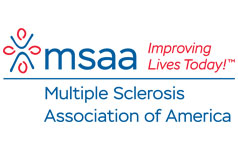Presently, the only proven treatment to reduce the incidence of MS relapses is to be taking one of the 15 long-term disease-modifying therapies (DMTs). These have all been approved by the United States Food and Drug Administration (FDA), with the first treatments receiving approval in the mid-1990s.
Several large clinical trials have been conducted to study each of these DMTs individually for their safety and effectiveness in MS. Although differences exist in study design and specific findings, trials generally showed these common results:
- Reduced the number of relapses
- Reduced the severity of relapses
- Reduced the development of new areas of inflammation as seen on magnetic resonance imaging (MRI) scans
- Showed some evidence of delaying disease progression and/or disability
The documented effectiveness of each of these drugs varies to some extent, and differences can be attributed to the type of the drug, dose and administration, as well as variations in study design. Stronger drugs may offer greater effectiveness but may also pose greater health risks. Additionally, the effectiveness and side effects of each drug may vary from one patient to another, so individuals need to consult with their physician to determine which treatment might be the best option for them.
MSAA Chief Medical Officer Jack Burks, MD explains, “The reductions in the number of relapses and the severity of relapses represent a major advance in MS therapy over the past 20 years. Individuals with relapsing forms of MS are now living with fewer problems as a result of taking one of the approved long-term treatments for MS. Many of these individuals are free of relapses for several years at a time.”













